
“As we go about our daily lives, caste is the wordless usher in a darkened theater, flashlight cast down in the aisles, guiding us to our assigned seats for a performance. The hierarchy of caste is not about feelings or morality. It is about power—which groups have it and which do not.”
Isabel Wilkerson has written an important book. Long-listed for some awards, and short-listed for others, it was named the #1 Non-Fiction Book of 2020 by Time magazine, and Oprah Winfrey chose it for her book club.
Despite all that, not everyone will read it.
Everyone should.
Wilkerson, a Pulitzer-prize winning author and journalist has written a powerful, disturbing, and heartbreaking account of the American caste system. I know there are people who hear the word “caste” and think, not here! Or that’s only in India or other places. Wilkerson, through impeccable research of caste systems in India and Germany easily proves that a caste system is fully alive in America. Her book gains more credence as she weaves in stories and examples of our caste system at work. Like the time when a little league team went to a public pool to celebrate their win and the one black child on the team was not allowed in the pool and was relegated to eating his lunch on a blanket outside the fenced area. When his coaches pleaded with the lifeguard to let him in, the cleared the pool of everyone, and placed him on a raft, while one lifeguard pushed him around the pool repeatedly saying, “Don’t touch the water. Just don’t touch the water.” It’s no surprise a teammate recalled this incident saying the boy was never the same after that outing.
As hard as it is to read these stories, it’s imperative we do; especially if we have had the privilege of being born to the dominant caste. It’s our role to dismantle the confines of our caste system, rewrite policy, open doors, extend the seats at the table to everyone.
Wilkerson writes:
“In our era, it is not enough to be tolerant. You tolerate mosquitoes in the summer, a rattle in an engine, the gray slush that collects at the crosswalk in winter. You tolerate what you would rather not have to deal with and wish would go away. It is no honor to be tolerated. Every spiritual tradition says love your neighbor as yourself, not tolerate them.”
I couldn’t agree with that sentiment more. I have never felt good about the idea of tolerating another person. We need to connect, understand, respect, and support one another. And while we need more empathy, it’s not the cure-all to eliminating this struggle for power that has been ingrained for centuries.
“Empathy is no substitute for the experience itself. We don’t get to tell a person with a broken leg or a bullet wound that they are not in pain. And people who have hit the caste lottery are not in a position to tell a person who has suffered under the tyranny of caste what is offensive or hurtful or demeaning to those at the bottom. The price of privilege is the moral duty to act when one sees another person treated unfairly. And the least that a person in the dominant caste can do is not make the pain any worse.”
I believe that all of us in the dominant caste have a responsibility to make the world better for everyone, not just those who look like us. One way to start is by understanding how we got here. Wilkerson’s book is a great place to start.

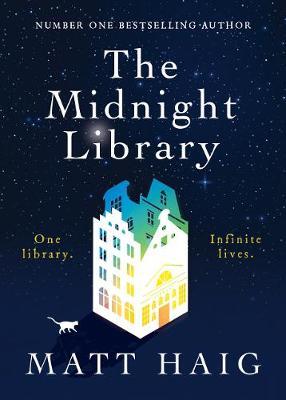
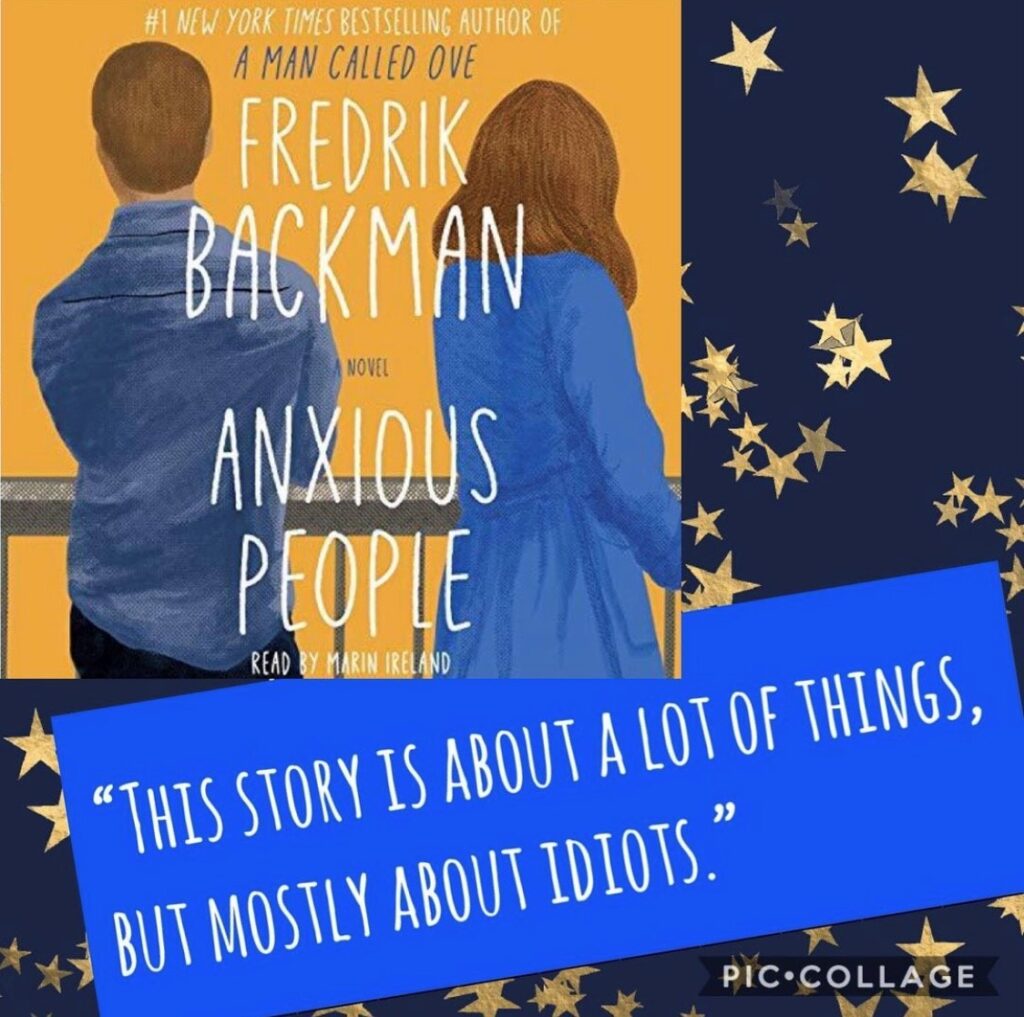
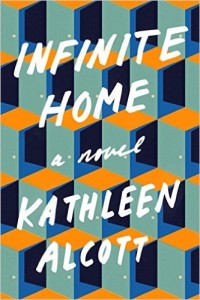

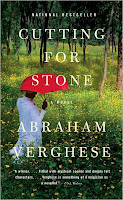 Let me start by saying I was less than thrilled to be reading Cutting for Stone. Before you get the wrong idea, let me clarify that statement. I really wanted to read this book. I was actually excited when it came up for my March Book Club. But then the excitement quickly faded and I realized that it was sixhundredandeightyeight pages (gulp) and I would have just a week to read it (unlike my fellow book clubbers who would have a month). Forget the gulps. This was freak out time.
Let me start by saying I was less than thrilled to be reading Cutting for Stone. Before you get the wrong idea, let me clarify that statement. I really wanted to read this book. I was actually excited when it came up for my March Book Club. But then the excitement quickly faded and I realized that it was sixhundredandeightyeight pages (gulp) and I would have just a week to read it (unlike my fellow book clubbers who would have a month). Forget the gulps. This was freak out time. It’s official: Size does matter. At least it does when it comes to books; and especially when we are talking about books that need to be consumed within a week. I found myself just yesterday afternoon still putting off the March book club mandate of 600+ pages and in an absolute tailspin about what to read this week that was short on pages, high on interest and starting with a letter of the alphabet that I hadn’t yet covered.
It’s official: Size does matter. At least it does when it comes to books; and especially when we are talking about books that need to be consumed within a week. I found myself just yesterday afternoon still putting off the March book club mandate of 600+ pages and in an absolute tailspin about what to read this week that was short on pages, high on interest and starting with a letter of the alphabet that I hadn’t yet covered. This week has been a gloomy and doomy weather week. Bitter cold temperatures for our desert clime: rain, wind and some even said they saw snow! While I didn’t see any, I saw perfect weather for curling up with a good book; fitting that this is the last week of my book-a-week project. It also seemed rather fitting that during this last week of gray skies and personal contentment that I slide How Reading Changed My Life by Anna Quindlen off the shelf. Not sure how it took me so long to read this book that I have owned for a few years and yet it’s a bit serendipitous stumbling upon it now after a year of doing more reading than I have ever done before.
This week has been a gloomy and doomy weather week. Bitter cold temperatures for our desert clime: rain, wind and some even said they saw snow! While I didn’t see any, I saw perfect weather for curling up with a good book; fitting that this is the last week of my book-a-week project. It also seemed rather fitting that during this last week of gray skies and personal contentment that I slide How Reading Changed My Life by Anna Quindlen off the shelf. Not sure how it took me so long to read this book that I have owned for a few years and yet it’s a bit serendipitous stumbling upon it now after a year of doing more reading than I have ever done before.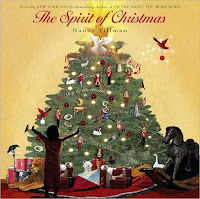 I have always loved Christmas. It’s absolutely-without-a-doubt my favorite holiday of the year. The twinkly lights, beautiful songs, delicious food, parties and get-togethers, finding the perfect gift, time off and all that goes into getting ready for Christmas are all things I look forward to. Sure there’s the stress of the holiday and the anxiety around getting everything done (some years I do, some not so much). And even now as a mother, I admit, I have lost a little sight on the the true gift of Christmas as I search for that “one” toy the kiddo wants (and throwing a few extra things under the tree while I am at it).
I have always loved Christmas. It’s absolutely-without-a-doubt my favorite holiday of the year. The twinkly lights, beautiful songs, delicious food, parties and get-togethers, finding the perfect gift, time off and all that goes into getting ready for Christmas are all things I look forward to. Sure there’s the stress of the holiday and the anxiety around getting everything done (some years I do, some not so much). And even now as a mother, I admit, I have lost a little sight on the the true gift of Christmas as I search for that “one” toy the kiddo wants (and throwing a few extra things under the tree while I am at it).